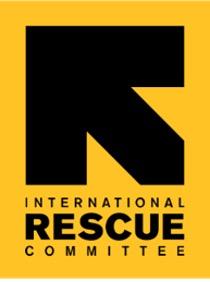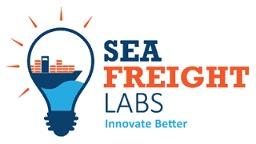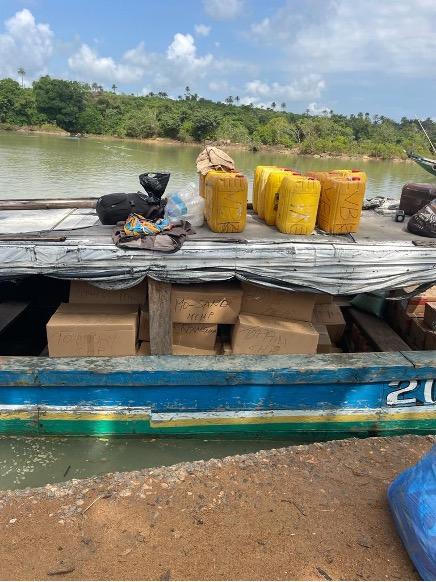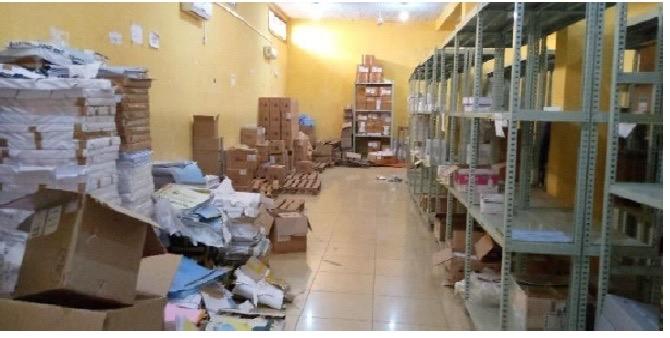Delivering medical supplies and drugs requires an efficient and safe supply chain. Do you have an innovative solution that will improve last mile medicine delivery in Sierra Leone and beyond? The IRC welcomes novel ideas and concepts, adaptations of technology, or commercially available existing solutions. Your solution could win up to US$25,000!
Delivering medical supplies and drugs requires an efficient and safe supply chain – from packaging through to transport and delivery at the last mile. In Sierra Leone, ground teams report that medicines, drugs, and other important supplies often arrive damaged or do not arrive at all. This potentially limits the delivery and access to life-saving drugs by people living in under-served communities.
To make these last mile deliveries more reliable, the International Rescue Committee (IRC) is searching for innovative and affordable packaging that will protect and track supplies at every stage. From packing at distribution centers to the clinics where they are used, being able to track healthcare supplies, keep them safe from shocks, and ensure their packaging is tamper proof will result in more successful deliveries.
The IRC is searching for packaging solutions that will have the following features:
This is a Prize Challenge which requires a written proposal to be submitted. Awards will be contingent upon the theoretical evaluation of the proposal by the IRC. For this Prize Challenge, Solvers are required to transfer non-exclusive rights to the Intellectual Property (IP) in their proposed solution, to be awarded.
Submissions to this Challenge must be received by 11:59 PM (US Eastern Time) on October 9th, 2023. Late submissions will not be considered.
ABOUT THE SEEKER & ELIGIBILITY

The International Rescue Committee (IRC) is a global humanitarian aid, relief, and development nongovernmental organization. Working in more than 40 countries and over 20 U.S. cities, the IRC helps those affected by humanitarian crises to survive, recover, and rebuild their lives.

IRC’s Airbel Impact Lab aims to find and advance breakthrough solutions, delivering them at scale – with an emphasis on solutions that can shape policy and practice around the world and not only in local contexts.

The IRC is supported in this project by SeaFreight Labs (www.seafreightlabs.com), an open-innovation consultancy using global challenges to cost-effectively deliver breakthrough innovation. Participation in this project is a direct result of SeaFreight Labs membership in the Pledge 1% movement.
The employees of the International Rescue Committee (IRC), as well as their spouses or partners and their relatives up to the fourth degree, are not eligible for awards in this Challenge.
Follow this link for more information about participation in Wazoku Crowd Challenges.
Background
For over 90 years, the International Rescue Committee (IRC) has undertaken humanitarian efforts around the globe, from clean water access to the delivery of potentially life-saving medicines. In Sierra Leone, many teams operate in local clinics – the point of delivery for treatment, healthcare, and medicine dispensation for many of the most vulnerable populations.
In order for medicines and essential supplies to reach these ‘last mile’ clinics from the regional distribution centers, deliveries to ‘the last mile’ or the final destination are undertaken by third party logistics (3PLs) trucks on regular distribution cycles. In Q4 2022, trucks were used to deliver 95 types of free healthcare commodities to 32 hospitals and 1,386 peripheral healthcare units (PHUs). These commodities are part of the government's initiative that facilitates pregnant women, lactating mothers, and children under-five to access medical care and services free of charge.
With 3-4 distribution cycles per annum, clinics are resupplied at long intervals – meaning the safe delivery of every last piece of medicine or health equipment is critical. However, at ‘last mile’ clinics, ground staff report that supplies often arrive damaged, having exceeded safe temperature ranges, or do not arrive at all. Staff from Sierra Leone report a loss factor of 12% across the whole supply chain due to theft spoilage of supplies, and inadequacy of packaging, often caused by theft, poor temperature management, or contents breaking due to how they are packaged.
In order to reduce the loss factor of key deliveries, the IRC is searching for innovative approaches to packaging design, structure, and functionality to help better protect supplies at every stage.

The importance of robust packaging is especially critical when last mile medical supply delivery also occurs by boat, pictured here in Nigeria by K. C. Nakalor.

An example of packaging storage at a facility in Kenema, Sierra Leone.
SOLUTION REQUIREMENTS & ACCEPTANCE CRITERIA
IRC are open to new ideas, concepts, your existing solutions or your knowledge about already existing solutions that may be adapted to this humanitarian context if needed.
Improvements to the packaging in last mile medicine delivery in Sierra Leone will help to guarantee drug integrity and reliable healthcare supply delivery in this country and potentially in other global contexts. The key solution requirements in this Challenge are around trackability, resistance, reuse, and affordability.
Trackability
A key requirement in this Challenge is that your proposed solution can be tracked, in some way, either in transport or upon packaging and upon receiving at the last mile. Trackability is both to monitor delivery and contents but also to reduce theft: meaning the device should resist tampering and not be affected by the weather/transport conditions. This could be achieved by building something into the packaging, affixing it securely to the outside, or placing something amongst the packaging contents – innovation in this area is encouraged.
Tracking that can be provided without significant cost is of primary interest to the IRC. The context where this tracking may be used is in areas with limited internet connectivity, so addressing this concern should be factored into your innovative design.
Resistance
There is often a difference between supplies sent and supplies received, with a proportion of this difference caused by theft and tampering. Your packaging solution should provide inventive ways to reduce this factor.
Deliveries are also made across all seasons, on varying roads, and often in open-top trucks, so your box must be resistant to damp and wet (rainy season and water), dust and shaking (road condition and weather), shock and crush (handling and packing), and the effects of the sun (temperature and weather).
Reuse
The 3PL trucks that deliver to the last mile also return to regional distribution centers, so boxes that can be reused are of great value to the IRC. A higher unit cost might be acceptable, depending on how many reuses are possible (please indicate in your proposal).
Affordability
Providing detailed cost limits for your innovative packaging solution will give the IRC a concrete metric to measure concepts against one another. Solutions must be feasible from a cost perspective (US$4 per box) to be used.
Cost constraints - cost per reusable packaging solution is maximum ≤ US$14.80 per year
For this Challenge, we are looking to replace one-time-use boxes (which currently costs US$14.80 per year per box) with reusable packaging solutions - including trackability and sturdiness. That will mean that if the reusable packaging lasts for 4 distribution cycles (1 year) of medical supply delivery, then the box needs to meet a capital cost of ≤ US$14.80 to be of interest in this Challenge.
For example, a box in the current distribution cycle costs US$3.70. 4 distribution cycles happen per year. This makes the annual cost for a single box US$14.80 for the IRC. Last year, they used around 37,460 boxes (9,360 boxes per distribution cycle). This means that the overall annual cost was US$138,600.
Should your packaging solution last for more than 4 distribution cycles, it will be of greater interest – however the same cost ratio must apply. For example, if your packaging solution lasts for 8 distribution cycles (2 years) then the cost per box could be ≤ US$29.60.
Your innovative packaging solution for last mile medicine delivery will improve the process to get drugs and supplies to those who need it most. Currently-used packaging can carry up to 25kg and standard measurement is 60cm x 40cm x 20cm (length x width x height).
Acceptance criteria
The IRC is primarily interested in solutions with the potential to meet the following requirements.
Any proposed solution must have:
1. Relevant cost point - US$14.80 per reusable box maximum, see cost constraints for further information.
2. Trackability
3. Packaging integrity
4. Reusable – for as many distribution cycles as possible
Nice to have requirements:
This is a Prize Challenge, which has the following features:
The Challenge award is contingent upon theoretical evaluation of the submitted solution by IRC and sufficient instructions to allow the IRC to consider prototyping. If multiple proposals meet all the Technical Requirements, the Seeker reserves the right to award only the solution which they believe will be the easiest to install at the lowest cost.
To receive an award, Solvers are required to grant to the International Rescue Committee (IRC) a non-exclusive license to practice their solutions. If your solution is commercially-available, the IRC will not require any transfer of IP rights.
The IRC will make awarded solutions freely available to other non-profit and for-profit organizations to help improve the state of medical supply delivery worldwide.
YOUR SUBMISSION
The submitted proposal must be written in English, be between 5-20 pages, and should include:
Submissions to this Challenge must be received by 11:59 PM (US Eastern Time) on October 9th, 2023. Late submissions will not be considered.
Your submission will be evaluated by the evaluation team first reviewing the information and content you have submitted at the submission form, with attachments used as additional context to your form submission. Submissions relying solely on attachments will receive less attention from the evaluation team.
After the Challenge submission due date, the IRC will complete the review process and make a decision with regards to the winning solution(s), according to the timeline in the Challenge header. All Solvers who submit a proposal will be notified about the status of their submissions.